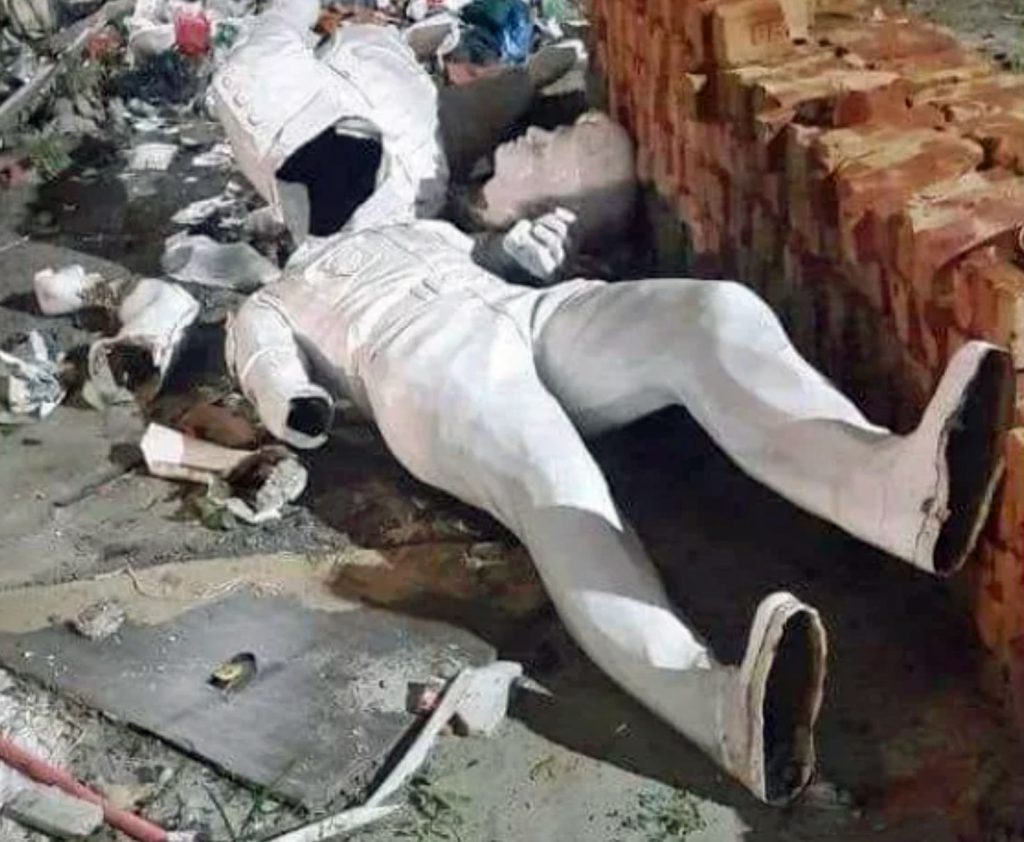LGBTQ people at risk: Will Bangladesh be a safe haven for Islamist militancy?
Colin Stewart is a 45-year journalism veteran living in Southern…
Human rights attorney fears that interim government is soft on Islamist terrorists

Human rights activists in Bangladesh fear that the nation’s current transitional government is opening the door to a return to the days when Islamic terrorists were murdering pro-secular and pro-LGBTQ writers.
Among the victims were pro-secular blogger Rajib Haider, murdered in 2013, and LGBTQ rights activists Xulhaz Mannan and Mahbub Tonoy, murdered in 2016. In 2017, radical Islamist cleric Jasimuddin Rahmani was sentenced to prison for his role in inciting Haider’s murder.
Rahmani has been in prison since then, facing several terrorism-related charges. He was released on bail on Aug. 26.
Human rights attorney Shahanur Islam, the founder of JusticeMakers Bangladesh in France (JMBF), fears that Rahmani’s release is a sign that Bangladesh is falling under the sway of radical Islamists. Currently located in France for his safety, he issued the following statement:
The Looming Threat: Is Bangladesh Becoming a Safe Haven for Islamic Militancy?
In the wake of the former Bangladesh Awami League-led government’s fall, Bangladesh seems to be veering towards a precarious future, with radical Islamic militancy gaining troubling momentum. The recent release of Jasimuddin Rahmani, a notorious Islamist cleric and spiritual leader of the banned terrorist organization Ansarullah Bangla Team (ABT), which is directly linked to Al-Qaeda, has sparked widespread fear and uncertainty about the country’s safety and security.
This release, allegedly influenced by an interim government led by Nobel laureate Professor Muhammad Yunus and supported by figures like Dr. Asif Nazrul [a law professor critical of the now-deposed Hasina regime] and Adilur Rahman Khan [a human rights defender who was imprisoned under the previous regime], has raised serious concerns about the potential resurgence of radical extremism in Bangladesh.
Rahmani’s Release: A Dangerous Precedent
Jasimuddin Rahmani’s release on August 26, 2024, is a deeply troubling development. Rahmani, a convicted radical cleric, was sentenced to five years in prison in December 2015 for inciting violence and the murders of secular activists and bloggers. His extremist sermons inspired a wave of brutal machete attacks that claimed the lives of several prominent voices in Bangladesh. Rahmani was also accused in four cases under the Anti-Terrorism Act and the ICT Act. He was granted bail in one of these cases, filed at Uttara West Police Station in 2008, while the other cases against him have been withdrawn. The fact that Rahmani is now free, allegedly due to undue influence and interference from the interim government, signals a dangerous precedent for the country, potentially emboldening other radical elements.
Interim Government’s Role and Alleged Collusion
The interim government, reportedly spearheaded by Professor Muhammad Yunus, has come under intense scrutiny for its controversial decisions and alleged ties to radical groups. The involvement of other key figures like Farida Akter, wife of Farhad Mazhar—a spiritual philosopher linked to Hefazat-e-Islam—KM Khaled, former Chief of Hefazat-e-Islam, Dr. Asif Nazrul, and environmentalist Syeda Rizwana Hasan, raises alarm bells about the motives and affiliations of those in power. These individuals, some of whom have been associated with radical ideologies, are now accused of facilitating Rahmani’s release and potentially paving the way for the resurgence of Islamic militancy in Bangladesh.

Resurgence of Radical Groups
Rahmani’s release comes at a time when radical Islamic groups in Bangladesh are becoming increasingly bold and visible. Hizb ut-Tahrir, a banned Islamist organization, has recently staged open demonstrations at Dhaka University, calling for the establishment of an Islamic government. Their posters have been found around the “Deepto Shopoth” sculpture, erected in memory of the police officers killed during the 2016 Holey Artisan Bakery attack. This act of defiance, coupled with the vandalism of the monument in Gulshan, underscores the group’s ongoing campaign for an Islamic caliphate and their disregard for the rule of law.
Moreover, the reinstatement of activities by Bangladesh Jamaat-e-Islami and its student wing, Islami Chhatra Shibir, on August 28, 2024, after the lifting of their ban, adds another layer of concern. Jamaat-e-Islami, implicated in war crimes during the 1971 Liberation War, has long been a breeding ground for radicalism in the country. Their newfound freedom to operate openly suggests a worrying alignment between the government and radical Islamic forces, potentially destabilizing the nation’s secular foundations.
Implications for Bangladesh’s Future
The current government’s perceived leniency towards radical Islamist groups raises serious questions about the future of Bangladesh. The release of convicted extremists like Jasimuddin Rahmani, coupled with the resurgence of banned organizations like Hizb ut-Tahrir and Jamaat-e-Islami, threatens to unravel the country’s hard-won secular fabric. The fear is that Bangladesh may soon become a safe haven for Islamic militancy, with far-reaching consequences for regional security and global counter-terrorism efforts. The country’s historical commitment to secularism is at risk, and the implications of this shift could be catastrophic.
Conclusion
Bangladesh stands at a critical crossroads. The release of Jasimuddin Rahmani, alongside the visible resurgence of radical groups, highlights a growing threat that could plunge the nation into a new era of instability and violence. As the government continues to navigate these treacherous waters, the international community and civil society must remain vigilant and proactive in countering the rise of Islamic militancy in Bangladesh. The stakes are high, and the future of the nation hangs in the balance.
In these uncertain times, it is essential for all stakeholders, both within and outside Bangladesh, to recognize the dangers posed by the current trajectory and take decisive actions to protect the country’s secular identity and ensure the safety and security of its citizens.
Shahanur Islam is a Bangladeshi lawyer and human rights defender currently living in France. He is the founder president of JusticeMakers Bangladesh in France. You can reach him at www.jmbf.org or shahanur.islam@jmbf.org




